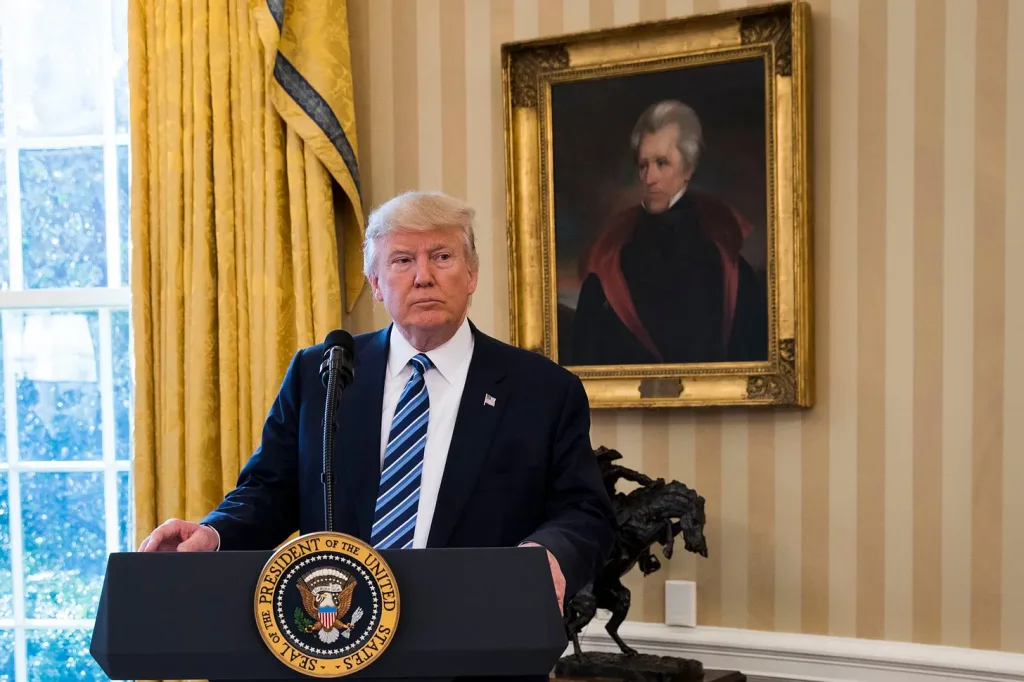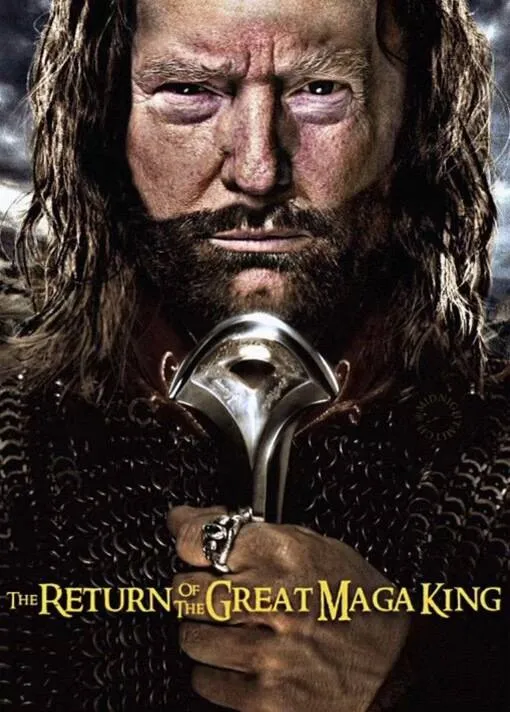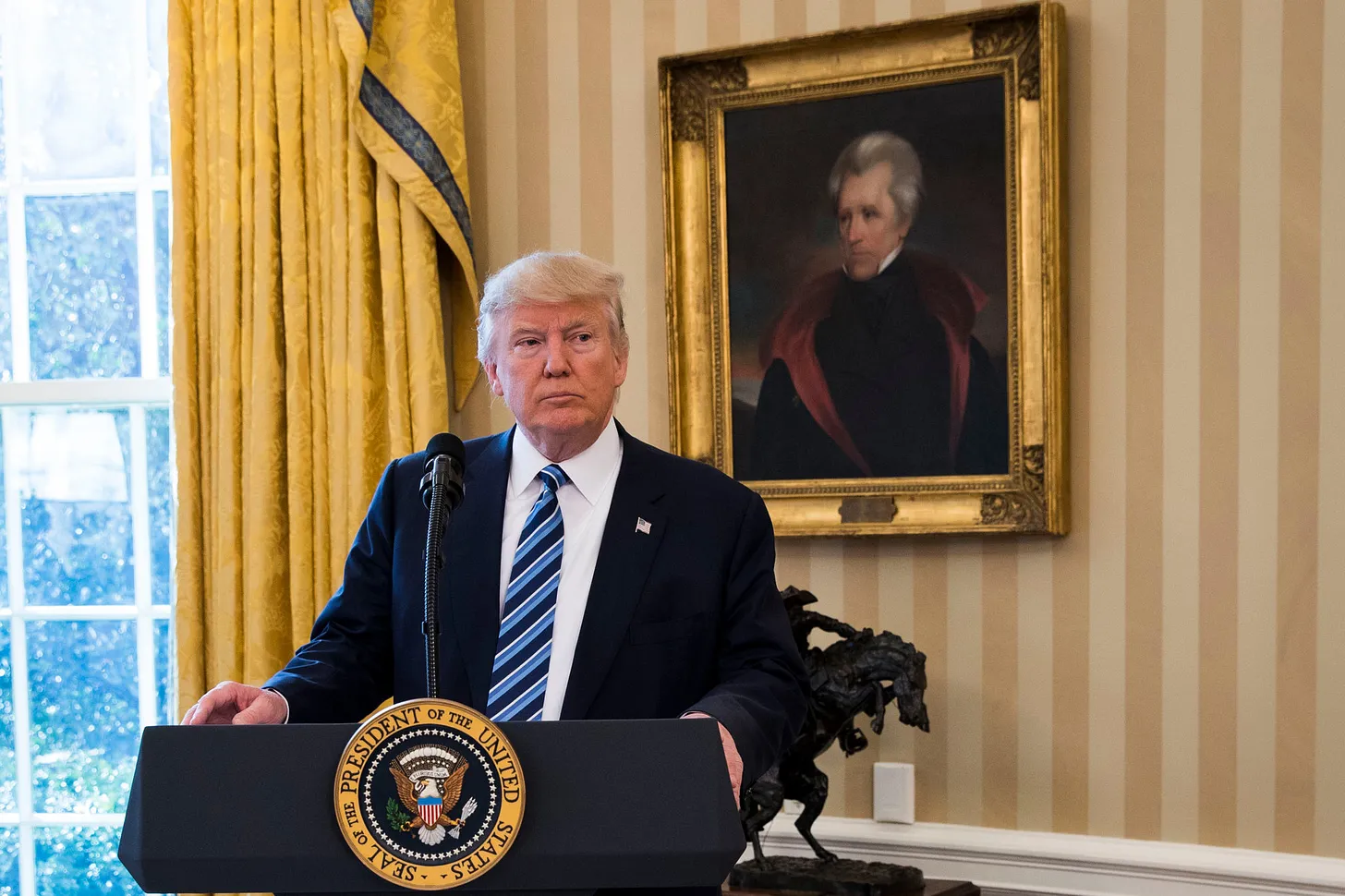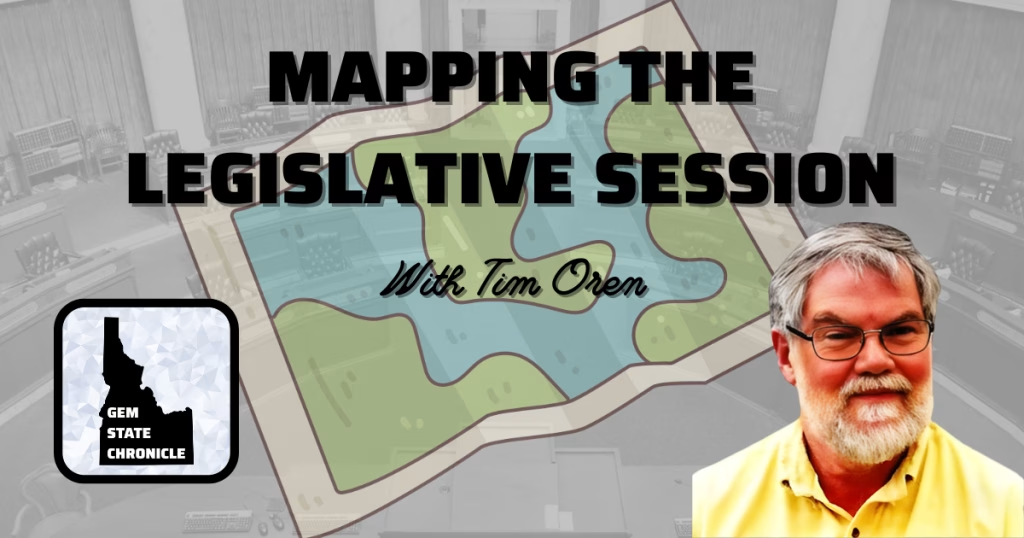On July 4, 1776, delegates to the Continental Congress signed their names to a document declaring independence from their king. Had Thomas Jefferson, Benjamin Franklin, or John Hancock been captured by British forces, King George III would have been well within his rights to order them hanged as traitors. Yet the Americans were victorious, and the rest is history. Americans have hated the idea of kings ever since.
The Romans hated kings too, after throwing off their own tyrant Tarquinius Superbus. Yet five centuries later, the people fell in love with Julius Caesar, making him a king in all but name. When Caesar’s friend Mark Antony offered him a laurel crown, boos from the crowd turned to cheers when Caesar refused it. Octavian Augustus never claimed the title of king, yet ruled a realm far beyond Tarquin’s wildest dreams.
Like the Roman emperors, American presidents have wielded tremendous power despite not holding a kingly title. History takes a very low view of presidents like James Buchanan, who believed the Constitution constrained him from preventing southern states from seceding from the Union, while it lauds Abraham Lincoln for ignoring the Constitution in mobilizing an army and declaring martial law in the border states. History can be complicated.
When President Franklin Roosevelt took the oath of office, he laid out an ambitious agenda that he intended to pursue whether Congress agreed or not, warning that should the Legislative Branch fail to enact his proposals, he would implement them anyway:
But in the event that the Congress shall fail to take one of these two courses, and in the event that the national emergency is still critical, I shall not evade the clear course of duty that will then confront me. I shall ask the Congress for the one remaining instrument to meet the crisis–broad Executive power to wage a war against the emergency, as great as the power that would be given to me if we were in fact invaded by a foreign foe.
This address, on March 4, 1933, came less than a week after the German government authorized emergency powers for Chancellor Adolf Hitler. History remembers one of these men as a hero, and the other worse than the devil. As I said, history is complicated.
FDR was obviously not as overtly evil as Hitler, but he nonetheless reshaped the American government in his autocratic image. The administrative bureaucracy—the deep state—that so vexes us today was born in Roosevelt’s Oval Office. When the Supreme Court—at the head of the third co-equal branch of government—declared portions of the New Deal unconstitutional, FDR attempted to pack the Court with his supporters. Despite failing in that endeavor, he succeeded in bending the Court to his will.
Interestingly enough, the concept of the dictator comes out of ancient Rome as well. The Roman system worked well enough during normal times, but they recognized that extraordinary times needed extraordinary measures. The Senate could vote dictatorial powers to one man, who had carte blanche for the duration of the crisis. He was expected to lay his powers back down once the crisis was over.
Unfortunately, like our leaders during Covid, would-be tyrants simply learned that they could stay in power forever by creating new crises. Hence the reign-for-life of leaders like Caesar, Hitler, and FDR. Roosevelt ran for and won an unprecedented third term, claiming that he was too important to replace in 1940. Then he ran and won again in 1944, serving in office from 1933 until his death in 1945. He was the closest thing America has ever had to a dictator (you might even call him a king), yet most Democrats today think he was the bees knees. On the other hand, they hate Donald Trump with every fiber of their being despite him acting with just a fraction of Roosevelt’s power. Why? Because FDR carried out policies they support.
Simple as.
Curtis Yarvin analogized executive power as a bicycle that FDR built, but one that has become old and rusty over the years:
True top-down White House control of the executive branch is like a bicycle that’s been sitting outside in the rain for 80 years. Previous Republican presidents, including Trump himself, had picked it up, posed with it, pretended to sit on it, actually sat on it, etc. But no one has actually tried to ride FDR’s rusty old bicycle.
What happens when you try? Do the pedals move? Does the chain break? The post? It’s fascinating to see Trump—plus a small army of revved-up nerdy zoomers—try to actually ride the bike. For all the reasons I said, it works much better than I expected. But—couldn’t we afford a new bike? Wouldn’t it be worth it? For the paper route?
Donald Trump is the first Republican president since Richard Nixon to attempt to actually use the executive authority created by Franklin Roosevelt, and for that he is called Nazi, Fascist, king. Democrats think this rhetoric will work, because Americans hate kings, but like the Romans, we love our populist champions. Recent opinion polls show the American people support President Trump and his crackdown on the Los Angeles lawlessness.
Franklin Roosevelt created Rings of Power into which he poured all his executive authority and will to govern. He distributed these rings not to Elves, Men, and Dwarves, but to bureaucrats within the administrative state. Some conservatives think we can throw the rings into the fires and end tyranny forever—nobody can use government power anymore!—but they forget that Mt. Doom is a fictional place. Government power is here to stay, and if Donald Trump doesn’t use it, then Gavin Newsom, Josh Shapiro, or Alexandria Ocasio-Cortez will.

The question is not whether government power will be used, but who will use it, and how. The lesson of the Covid-era lockdowns was not that government power is bad (though obviously it can be terrible!) but that bad people will use their authority to do bad things. The cure for bad people in power is not more laws, because bad people by definition don’t follow the law. No, we need better people in power. Or, since everyone is corruptible, we need people whose power will check each other.
James Madison explained it better in Federalist 51:
What is government itself, but the greatest of all reflections on human nature? If men were angels, no government would be necessary. If angels were to govern men, neither external nor internal controls on government would be necessary. In framing a government which is to be administered by men over men, the great difficulty lies in this: you must first enable the government to control the governed; and in the next place oblige it to control itself. A dependence on the people is, no doubt, the primary control on the government; but experience has taught mankind the necessity of auxiliary precautions. This policy of supplying, by opposite and rival interests, the defect of better motives, might be traced through the whole system of human affairs, private as well as public. We see it particularly displayed in all the subordinate distributions of power, where the constant aim is to divide and arrange the several offices in such a manner as that each may be a check on the other that the private interest of every individual may be a sentinel over the public rights.
Donald Trump is carrying out the will of his voters but leftist Democrats cannot permit that to happen, because they hate us and everything we stand for. As Trump often says, they’re not coming for him, they’re coming for us, and he is just standing in the way.
Accusing the American president of acting like a king is nothing new, of course. In the election of 1800, Thomas Jefferson’s supporters accused John Adams of planning to make himself King of America. in the 1830s, Andrew Jackson’s opponents caricatured him as “King Andrew the First” in political cartoons:

Donald Trump understands this. He hung a picture of Jackson in the Oval Office during his first term, and again in his second.

Even Joe Biden called Trump “The Great MAGA King” during one of his deranged rants. Trump, of course, was quick to reply on Truth Social:

Donald Trump found the crown of America, such as it was, lying in the corner of a cubicle at Foggy Bottom.
This Saturday, Democrats will hit the streets for yet another impotent protest of Donald Trump. They’re calling it “No Kings,” returning yet again to their old familiar rhetoric. I wonder how many would hate Trump even more if he said:
I’ve got a pen, and I’ve got a phone, and I can use that pen to sign executive orders and take executive action. I’ve got a pen to take executive actions and administrative actions.
Oh wait, that was Barack Obama. I’m sure they would say that was totally different.
In addition to Donald Trump in general, leftists this weekend will be protesting fiscal responsibility and the rule of law. In their eyes, the purpose of government is to funnel tax dollars to them and their friends while importing tens of millions of third-worlders into America’s heartland, because they hate you.
In their eyes, the purpose of the presidency is for a senile figurehead to allow staffers to sign his name to whatever orders are dreamt up in the bureaucratic bowels of the deep state. Article II of the Constitution is all fiction, of course—America was meant to be ruled by a class of overly-credentialed midwits from Harvard, not some random person that the American people happened to elect to the office.
Disregard the Democrats. They are just doing what Democrats do. You must resist the temptation to accept their frame of reference. It doesn’t make you a more thoughtful person to give credence to both sides here. Donald Trump is not acting like a king, and we should not give any ground with regard to that accusation. He is our president, and he is doing what we elected him to do: reform a broken government, restore law and order, and defend the United States of America.
Simple as.
Gem State Chronicle is a reader-supported publication. To receive new posts and support my work, consider becoming a free or paid subscriber.
About Brian Almon
Brian Almon is the Editor of the Gem State Chronicle. He also serves as Chairman of the District 14 Republican Party and is a trustee of the Eagle Public Library Board. He lives with his wife and five children in Eagle.













